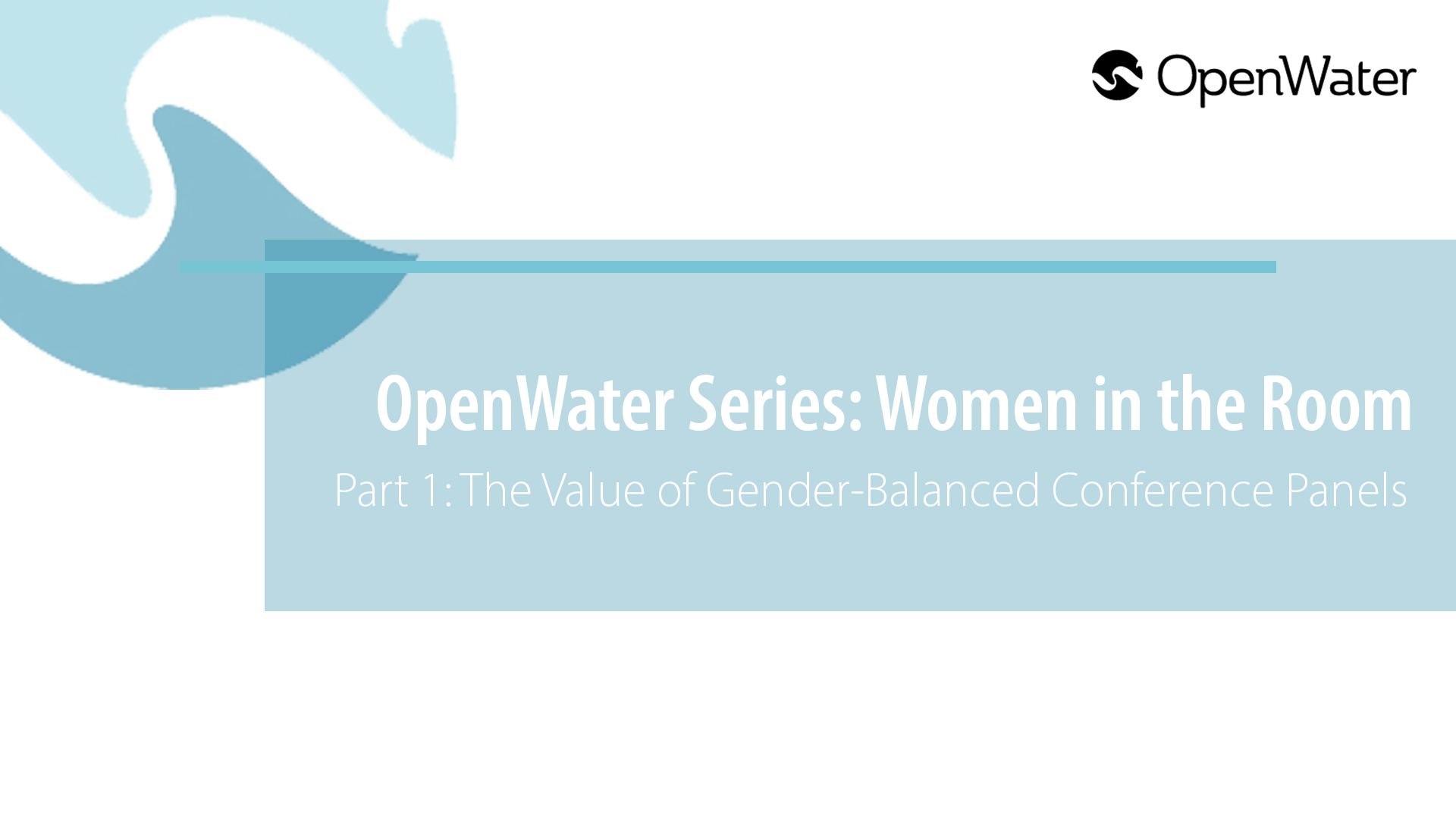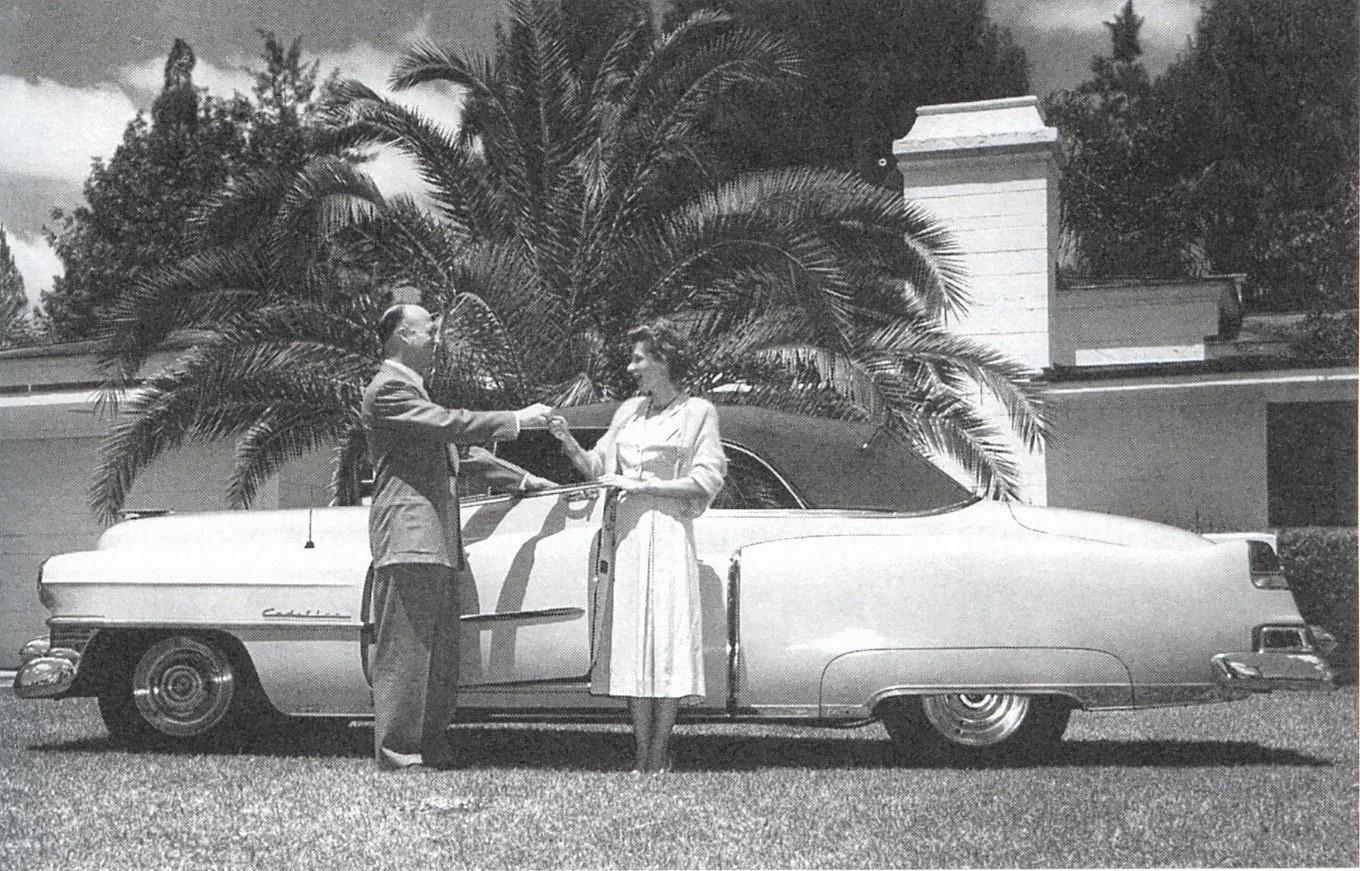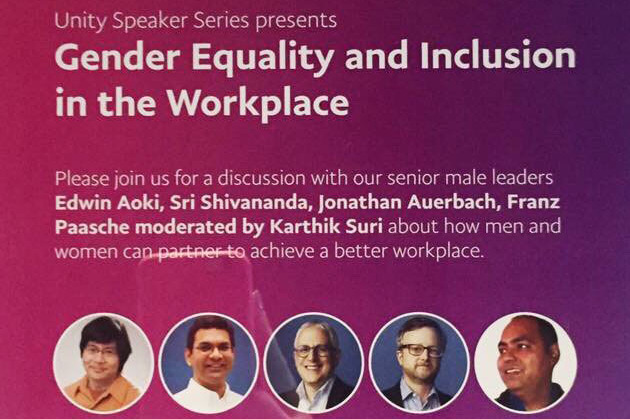
Women in the Room: Part 1 – The Value of Gender-Balanced Conference Panels
Do you know the name Brownie Wise?

Many people know what tupperwares are – but shake their head when asked if they are familiar with Brownie Wise. When Earl Tupper founded Tupperware in 1942, despite the ingenuity of the product, he was having an extremely tough time getting through to customers who were still wary of storing food in a container that was derived from oil. Americans – especially American women who back then did most of the housework – didn’t trust smelly, greasy plastic. Earl Tupper was stuck. How was he going to get people to trust his company and his products?
This all changed with Brownie Wise. A genius marketer and savvy housewife, the company that Brownie started with her mother – Tupperware Patio Parties – caught Earl Tupper’s eye when a small, Floridian home business was selling far more tupperware than any department store across the United States. The name says it all about their business model. Brownie and her mother would invite women to gatherings that were held in private homes where housewives were given the opportunity to socialize with other women, see the product in person and give it a try. Earl Tupper was so impressed that he ended up hiring Brownie as the VP of home parties at Tupperware, where she capitalized on her perspective, experience, and connections to completely overhaul tupperware’s brand image and bring their products to the mass market.
Many corporations now cite the partnership between Earl Tupper and Brownie Wise as a great example of what gender balance can do for executive leadership. Having a balanced executive committee, company board, review committee, etc, only serves to contribute to the diversity of perspectives which come back in the form of positive business returns.
(Their partnership later fell apart much later in one whale of a meltdown, but that’s a story for another time.)
The Reality of “Manels”

If you want a good laugh, go visit the Twitter handle @AllMalePanels, a twitter page that parody-shames conferences, seminars and events that feature an all-male panel, or what some people jokingly refer to nowadays, a “manel”. All jokes aside however, manels are a reality that is all too common today. In a recent survey, of the 60,000 speakers analyzed at mostly private sector events that were held in 23 countries this year, almost 70 percent of them were male. Many experts discredit those who cite a difficulty in finding female panelists in a traditionally male-dominated industry (ie. eSports, Sports & Exercise Medicine, Construction, Film Direction, Culinary) without diluting the standards of the panel. According to Daniel Drezner, a politics professor at Tufts University and Washington post contributor, “[there is no] need to look for specifically women’s voices – just people who know what they are talking about and can do it well.”
Representation Attracts a Wider Audience

In an experimental study where solo vs. majority groups were manipulated, researchers found that women were far less talkative when they were in the minority group. More disturbingly, the opposite was true for men – where solo, minority status bolstered their confidence and made them more likely to overpower the group dynamic.
Story time once more. At the World Science Festival in New York last June, theoretical physicist Veronika Hubeny was the lone female in an otherwise all-male panel. For the first hour, she wasn’t given much of an opportunity to speak. The moderator then asked her a question, commenting that the group has yet to hear much from her. When she opened her mouth to answer his original question, he began to repeatedly talk over her as he began to explain string theory to the audience, which happens to be Hubeny’s area of expertise. After about three minutes of non-stop interruptions from the moderator, an audience member shouted from the stands: “Let her speak, please!”, to an uproarious applause from the crowd. As it appears, there is still a lot of work left to do.
It goes without saying that a diverse panel, board, review committee, attracts a diverse audience and applicant pool. To take an example, HubSpot’s annual digital marketing conference INBOUND, attracts about 20,000 employees from more than 100 countries to the city of Boston. The audience of INBOUND is about 65% female, but the conference organizers note that this is both a cause and effect of equal representation – “that if we make an effort to create diversity on the stages, we see more diversity in our attendees as well.”
It’s Just a Matter of Stepping Up to the Plate

Despite calls to increase representation and intersectionality at these events, the numbers aren’t that encouraging; in the past two years, the number of women speakers at conferences, events, and seminars has only increased by about 2 percent. Why is it that we’re struggling so much to put women in front of a microphone? The numbers don’t add up. To take the field of mathematics as an example, he estimated that women make up 24 percent of PhDs in mathematics, so statistically, panels of these high level mathematicians should consist of at least 1 in 4 female speakers – not 1 in 19. Why is it that we’re struggling so much to put women behind the microphone?
The answer appears to lie somewhere deceptively simple; not enough women are being asked – with the emphasis on the word “enough”. If you try to address the issue of male-dominated panels with conference organizers, you’ll probably be met with a defensive rebuttal that they tried to invite more women – but none of them were able to make it. The reason behind this is because conference organizers have a list of top female candidates they believe are suited to speak at their events, and more often than not, these lists tend to overlap.
The second part of the answer also lies in cooperation from the male panelists. Bob Coughlin, president of the Massachusetts Biotechnology Council, told the Globe earlier this year about his pledge to boycott all-male panels, and will only participate in an event after helping the organizer find qualified high-profile women to join the discussion. Hans Schulz, VP at the Inter-American Development Bank, makes sure that there is at least one woman on a panel before he agrees to speak at an event and has created a database of women he knows and meets who would be good speakers. His list already has about 350 names.
Change is slow, but progress is on the way.
Still not sure if a OpenWater’s Conference Management Software is what you need? Click here to find out more about OpenWater and our Growthstack.
Already with OpenWater? Have you checked if your organization is OpenWater certified? Hurry! Check out our calendar to find out about upcoming webinars and certification programs.

